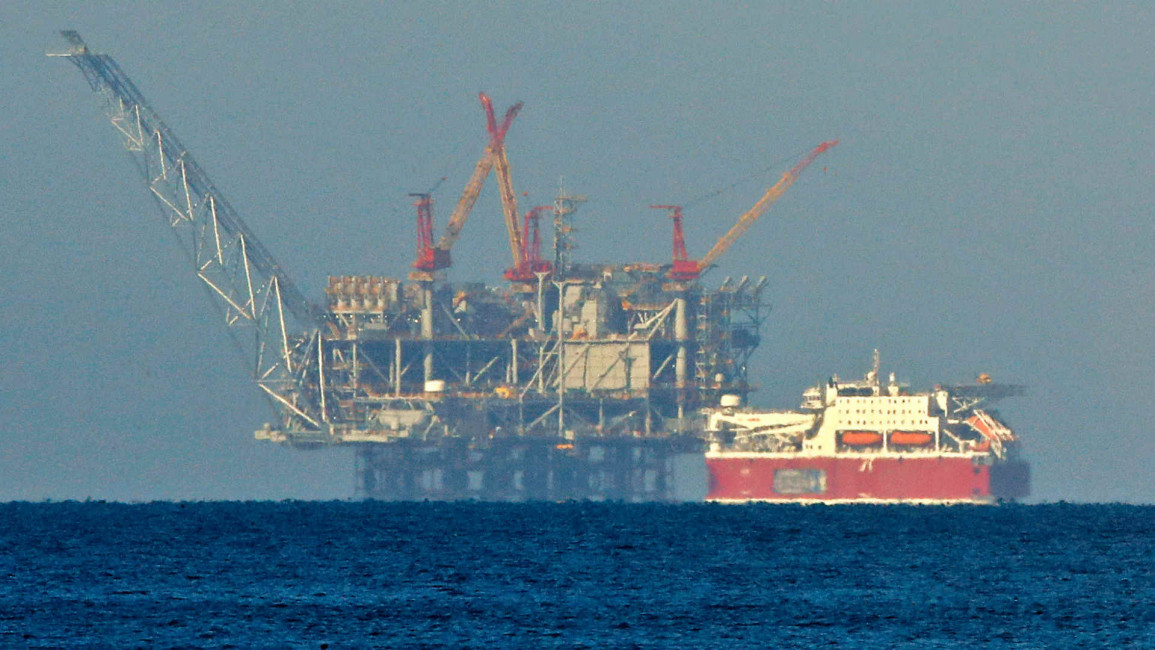Jordan receives first natural gas delivery from Israel amid widespread opposition
Texas-based Noble Energy will pump gas to Jordan for a three-month period, Reuters reported, under terms agreed in a 2016 deal between Jordan's NEPCO and Noble Energy worth $10 billion.
"The experimental pumping will continue for three-months under the technical and contractual terms between the two sides," said NEPCO's statement.
"It's a black day in the history of Jordan and a crime against the nation and a national catastrophe that makes our sovereignty hostage and the energy sector in the hands of the Zionist occupation," said Jordan's main political opposition Islamic Action Front, in comments quoted by Reuters.
Jordan, has already been purchasing gas from Israel's Tamar field on a small scale for nearly three years.
The amount of gas extracted from both natural gas fields will exceed 85 billion cubic meters (bcm), with Leviathan accounting for almost two thirds.
The value of the gas exports is estimated at $19.5 billion, Reuters reported.
Israel's offshore Leviathan field started pumping gas on Tuesday in what the operating consortium hailed as "a historic turning point" for the Israeli economy.
Read more: Normalisation celebration: Israel euphoric as it officially signs agreement to attend Dubai Expo
"For the first time in its history, Israel to become a significant natural gas exporter," it said. A joint statement from partners Noble Energy, Delek Drilling, and Ratio said the start of production was expected to lead to an immediate reduction in domestic electricity prices and the start of exports.
'Fighting for years'
Israeli Prime Minister Benjamin Netanyahu - currently campaigning for a third general election in a year - welcomed the expected cheaper power.
"I have been fighting for years to extract gas in the face of the fierce opposition from political rivals," he wrote on Facebook.
The price of electricity "will decline further in the coming year thanks to natural gas, which makes Israel a regional power", Netanyahu said.
Twitter Post
|
On 17 December, Energy Minister Yuval Steinitz announced approval of sales to Egypt from Leviathan and the smaller Tamar gas field.
A spokesman for Israeli partner Delek said then that deliveries to Egypt were expected to begin on 1 January.
Leviathan was discovered 130 kilometres west of the Mediterranean port city Haifa in 2010.
It is estimated to hold 535 billion cubic metres (18.9 trillion cubic feet) of natural gas, along with 34.1 million barrels of condensate.
Delek and US-based Noble struck a $15 billion, 10-year deal with Egypt's Dolphinus last year to supply 64 billion cubic metres (2.26 trillion cubic feet).
It will be the launch of Israeli gas exports to Egypt, which in 1979 became the first Arab country to sign a peace accord with the Jewish state.
Israel had previously bought gas from Egypt, but land sections of the pipeline were targeted multiple times by Sinai militants in 2011 and 2012.
The Tamar and Leviathan gas will reach Egypt through the mainly undersea East Mediterranean Gas Company pipeline connecting the coastal city of Ashkelon with Egypt's northern Sinai peninsula.
Tamar, which began production in 2013, has estimated reserves of up to 238 billion cubic metres (8.4 trillion cubic feet).
Scramble for energy
The discovery of hydrocarbon reserves in the eastern Mediterranean has sparked a scramble for the energy riches and a dispute between Cyprus and Turkey, which occupies the north of the Mediterranean island.
Besides bringing energy independence, Israel hopes its gas reserves will enable it to strengthen strategic ties in the region and help forge new ones, with an eye on the European market.
Last week, the Greek government said it was to sign an agreement for a huge pipeline project with Cyprus and Israel designed to pipe gas from the eastern Mediterranean to Europe.
Greek Prime Minister Kyriakos Mitsotakis's office said the agreement for the EastMed pipeline would be inked in Athens on 2 January with Netanyahu and Cypriot President Nicos Anastasiades.
The 2,000-kilometre pipeline will be able to transfer between nine and 12 billion cubic metres a year from offshore gas reserves between Israel and Cyprus to Greece, and then on to Italy and southeastern Europe.
Read more: Turkey's military involvement in Libya: Do desperate times call for desperate measures?
There are growing tensions with Turkey over its own activities in the area, particularly a contentious maritime deal with Libya expanding Ankara's claims over a large gas-rich area of the Mediterranean.
Natural gas is set to replace coal as the main fuel for power generation in Israel.
Critics note that while less polluting than coal, gas is still far from being a clean source of energy.
There have been fears among the Israeli public that the start of production from Leviathan, with gas flowing to a processing platform 10 kilometres offshore, could bring harmful emissions.
Follow us on Twitter and Instagram to stay connected



